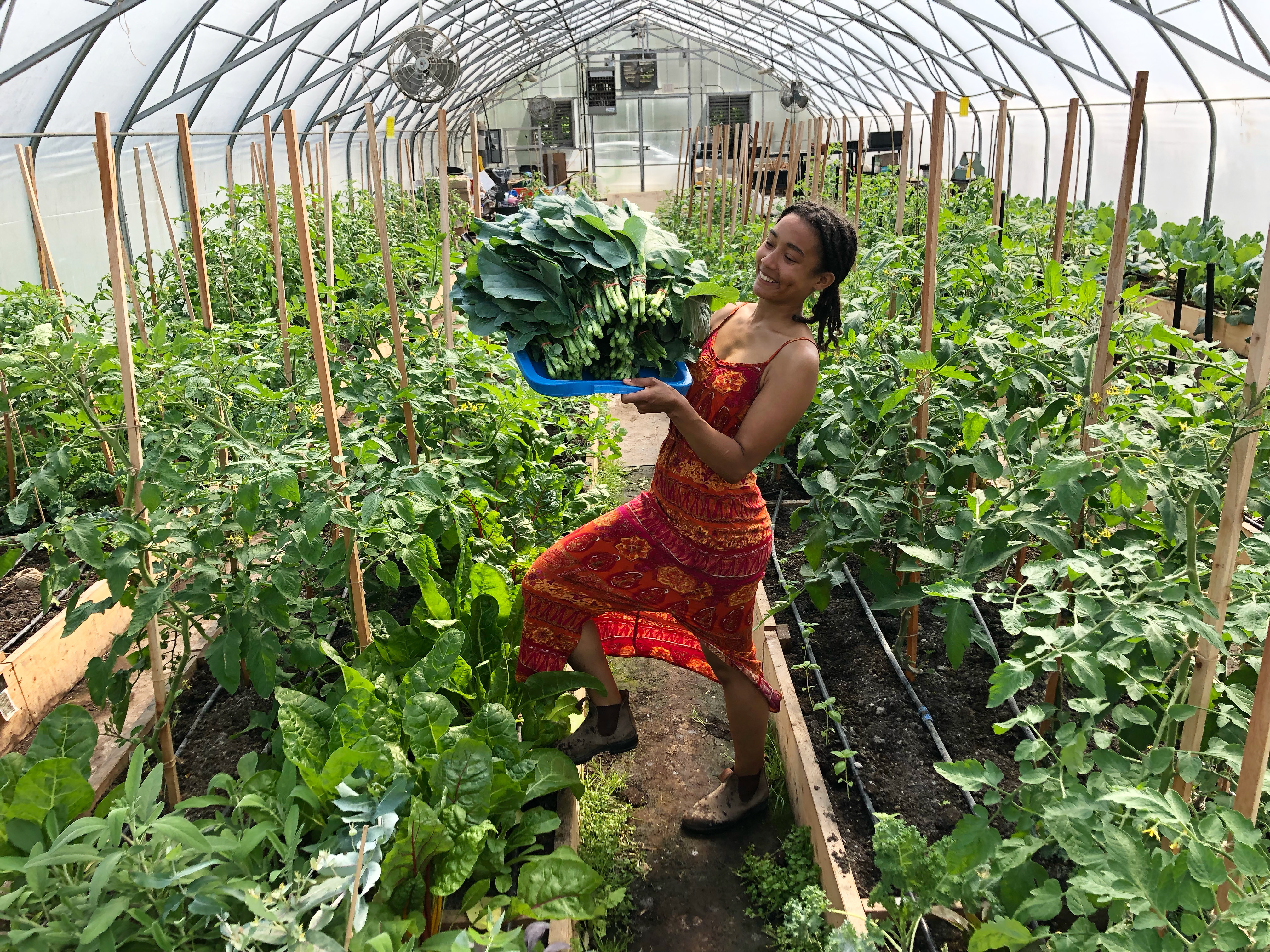Cheyenne Sundance is a Black femme farmer, and owner of Sundance Harvest located in Toronto, Ontario. For 23-year-old Sundance, land and learning are the greatest barriers faced by these people of the land. But Black women also have to challenge gender norms that traditionally put white men and women in charge of food production and a handful of predominantly white men in control of limited resources, markets and distribution methods.
When Sundance shared her dream of starting her own farm, she was told to take an unpaid internship in order to learn more about growing food. She balked at the idea because in her words: “Labour is labour and unpaid labour is exploitation.”
With hard work and ingenuity, Sundance created her ethical, non-exploitative Black femme farm inside a 240 square metre greenhouse in Downsview Park where she offers free education to marginalized youth so they can feed themselves and start their own farms.
Sundance focuses her energy on food justice. She offers access to a wide variety of resources, knowledge and guidance so Black, Indigenous and people of colour (BIPOC) can empower themselves and start their own food and land sovereignty movements. BIPOC inclusion and participation is the best way to eradicate the institutionalized racism rooted in the conventional Canadian food system.
When Black women control the food system from seed to table, they ensure their communities are healthy. According to Sundance, “These neighbourhoods need justice to be able to grow food not only in response to hunger. They need Black food sovereignty which benefits all people because it creates more farms which increases food security while addressing underlying issues like a lack of income due to overpolicing and gentrification of Black neighbourhoods which pushes up housing costs.”
The farm’s overwhelming success means Sundance is ready to expand. She’s in the process of purchasing 1.2 hectares of land in the Chatham-Kent area where she’ll continue growing heritage, organic, fresh produce.
So, what should white allies do to improve Black food sovereignty? They should be having conversations around the fact true inclusion will be impossible until they are willing to share their power.
Then, allies should move out of the way and give resources to Black folk because it’s their time to lead the food movement utilizing their lived experiences, knowledge, food work, and relationships with the land. Black youth need to see Black role models so they embrace their right to Black food sovereignty and know it is possible.
Sundance points out that well-meaning white people taking food grants actually creates more harm as Black folk need that funding. Instead, put a Black femme farmer in your place and provide the money to pay for her position. Open dialogues with other white people to prioritize Black sovereignty at food banks and NGOs.
If you have a frontyard, backyard, or rooftop that can be cultivated, offer it to a Black farmer. Consider land trusts and lobby municipal governments to let Black farmers use parkland to grow food for local communities. Go one step further and ask those with farmland to consider letting BIPOC folk farm it when they retire.
Integral to food sovereignty is supporting the living wage campaign; speaking out against gentrification; encouraging cities and conservation authorities to make land accessible to Black farmers; to make room for co-ops and collective land ownership all while resisting replicating the capitalist food system that has failed too many in this country.
It’s time for allies to educate themselves. Then, turn that knowledge into action using your privilege and power to dismantle the old food system while building a new one based on social equity and justice — and that includes embracing Black femme food sovereignty.
Become an accomplice by donating to Sundance Harvest’s community fundraiser here.
Doreen Nicoll is a freelance writer, teacher, social activist and member of several community organizations working diligently to end poverty, hunger and gendered violence.
Image: Submitted



